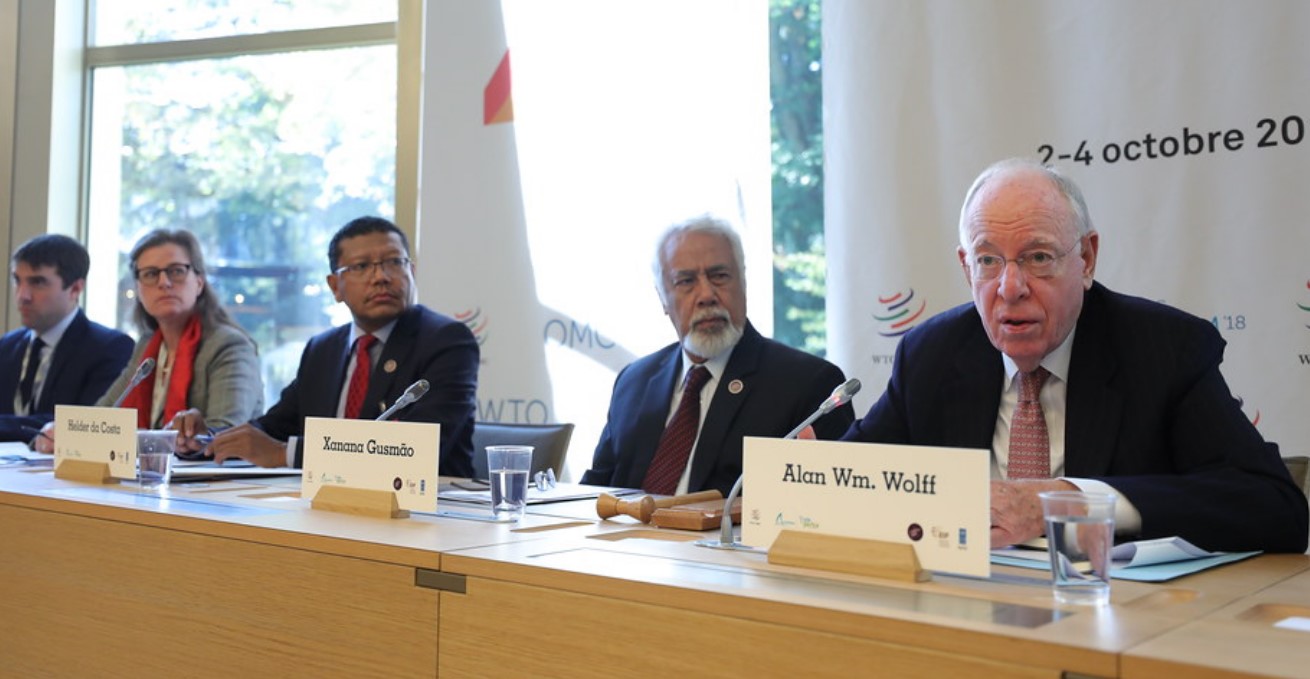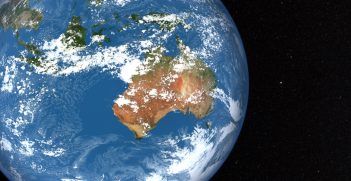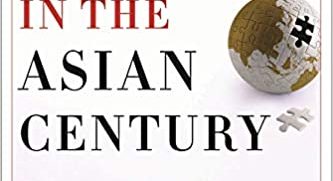Can the International Community Really Count on the USA or China for International Trade?

Donald Trump, and loyal members of his cabinet, seem satisfied with a transactional deal over the current US-China trade “dispute,” not minding outcomes that might harm other trading partners of Washington or Beijing like Australia. But this is precisely what Australia and the international community hoped to avoid when China signed on to the World Trade Organisation (WTO) and its related disciplines in 1995, regarding China’s acceptance of this “international order” as significant.
Background
In the days leading up to China’s entry into the World Trade Organisation (WTO) in 1995, much of the international public debate centred on whether or not China would really respect the legal disciplines underpinning the then current global arrangements on trade. At that time, idealists agreed that WTO accession by China offered the best prospect for arriving at an international trade arrangement that was not inherently discriminatory in law, distortionary in commerce, or discredited in terms of fairness and equity to which China could subscribe. China’s participation in the global trading system on this basis was regarded as extremely important. At that time, as now, Australian concerns focused as much on popular attitudes in the USA as on attitudes in China, where it was assumed that China would not be able to enter into any commitments that were not fully or openly backed by the Chinese Communist Party (CCP).
One key idea behind setting up a multilateral trading system that would enjoy unquestioned international support, was to ensure it could operate with the full force of international law, and according to principles that were guaranteed by having global backing. An important reason for this was that the rules should not be controlled by the biggest or the strongest country, or be dominated by a distant or remote centre of power. Nor were the rules endowed with inevitability or infallibility; they had to be subject to reasonable contestation or challenge. And so this system needed to be based on the broadest possible participation to be credible and widely supported. At that time, the consensus was that this kind of international system would offer the fairest outcome for all counties. It was considered by some to epitomise the new “rule of international order” which might safeguard the interests of individual countries in the post-cold war era.
But the key underlying assessment at that time was that it was unreasonable and illogical to expect any major country to take responsibility for protecting the rights and interests of smaller countries. A powerful country might well defend and fight for its own interests, but it could not be expected to act effectively on behalf of others. Whether dealing with matters of trade, or institutions, or individuals, universal arrangements were needed that allowed independent, rules-based judgments to be made that could be counted on to operate with full effect and enjoying proper respect from all concerned. This was deemed to represent a fundamental political consensus. And it seemed to be a consensus that China itself was prepared to accept.
Naturally, a universally accepted multilateral system to underpin the operation of a global trading system was thought to be ideal. This would reinforce the predictability of the whole international commercial system; it would allow all aspects of international commerce to flourish; options for settling differences would be known in advance, and would be trusted and respected by everyone; unexpected or unforeseen developments would be minimised; all aspects of the arrangements could be codified in the various administrative networks that support trade and commerce; and ultimately, this would enable the operation of a more economical, and fairer system of global commerce. Together, all of these measures would significantly enhance the certainty of international trade. During the 1990s, Australia was prepared to take the lead in various international forums to argue for such a system. This sometimes meant that Australia seemed to argue against its traditional allies, the USA and the EU; it also meant that Australia was ahead of many of its newer “allies” in the third world.
Issues
One of Australia’s greatest concerns at that time was the United States, which was even then not generally disposed to accept any multilateral disciplines on anything (this was a point that the USA reinforced in the WTO by declining for many years to nominate judges for the WTO’s all-important arbitration panel, placing at risk the very mechanism that would ensure universality). The other great uncertainty for Australia at that time was the European Union which seemed determined to go its own way on trade (this makes the current arguments about “Brexit” – the UK leaving the EU, not joining it, look even more curious!). US political leaders often tended to expect “deals” on trade to be available to United States negotiators as part of “favours” to be bargained over, not necessarily achieved solely by commercial superiority. Various Australian scholars argued that this was not the preferred outcome for a sound US-China economic relationship.
While the retrospective comment of outgoing Australian ambassador to the United States, Joe Hockey, that effectively, “Washington is the new Rome,” may be an accurate as well as an honest reflection of how Hockey conducted himself when dealing with an unorthodox, ignorant and potentially illegitimate leader like Donald Trump, this was hardly an edifying or honourable “take” on how Australian interests stand. Trump’s way is not necessarily correct or assured now that he is being impeached, and it certainly does not offer any new levels of global integrity or global prosperity. Rather, at the very least, it leaves the whole international community with even greater doubts about Australia’s increasingly lonely position as an unquestioning US ally on international security, on international trade, and on the so-called “rule of law.” Indeed, as 2020 unfolds, global realities are revealing more and more situations where Donald Trump’s views are contested and discarded; even Americans are questioning Trump’s “authority.” In such circumstances, Hockey’s views as a failed Treasurer, and totally pliable US supporter, lack credibility and substance. And Prime Minister Morrison’s knack of saying the wrong thing in the wrong place at the wrong time to Washington is probably not helping Australia’s international reputation at all.
In the meantime, President Trump and Chinese leaders announced “agreements” on trade between China and the United States. This foreshadowed bilateral deals on market share, on tariff levels, and on volumes of trade, which prejudices trade from third countries such as Australia, precisely as forewarned by Australian experts.
Trevor Wilson is a Visiting Fellow at the Department of Political & Social Change, College of Asia & the Pacific at the Australian National University. He worked on preparations for the establishment of the WTO as the Assistant Secretary, Trade, Defence and Americas Branch, International Division, Department of Prime Minister & Cabinet, Canberra 1994-95.
This article is published under a Creative Commons Licence and may be republished with attribution.





